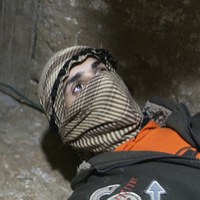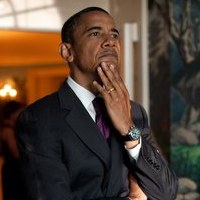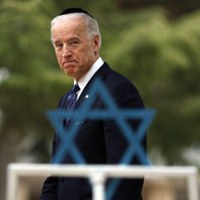![]()
Zaterdag, 15 Januari 2011 | Bewerkt door Crethi Plethi
WikiLeaks: Nederland Had Moeite met het Vinden van een Partner voor Missie in Afghanistan
Document: Ambtsbericht van de Amerikaanse ambassade in Den Haag over de moeilijke zoektocht naar een partner in Afghanistan en over hoe Verhagen daarbij “expliciet” om hulp vroeg.
Bron: WikiLeaks/NOS
”
122868,9/19/2007 16:13,07THEHAGUE1729,”Embassy The
Hague”,SECRET,07THEHAGUE1625,”VZCZCXYZ0022
OO RUEHWEBDE RUEHTC #1729/01 2621613
ZNY SSSSS ZZH
O 191613Z SEP 07
FM AMEMBASSY THE HAGUE
TO RUEHC/SECSTATE WASHDC IMMEDIATE 0313
INFO RUEHZG/NATO EU COLLECTIVE PRIORITY
RUEHBY/AMEMBASSY CANBERRA PRIORITY 2690
RUEHBUL/AMEMBASSY KABUL PRIORITY 0303
RUEHOT/AMEMBASSY OTTAWA PRIORITY 5166
RUEKJCS/CJCS WASHDC PRIORITY
RUEAIIA/CIA WASHDC PRIORITY
RUEKJCS/DIA WASHDC PRIORITY
RHEHNSC/NSC WASHDC PRIORITY
RUEKJCS/SECDEF WASHDC PRIORITY
“,”S E C R E T THE HAGUE 001729SIPDIS
SIPDIS
STATE FOR EUR/WE, EUR/RPM, SCA
E.O. 12958: DECL: 09/19/2017
TAGS: PGOV, PREL, NATO, AF, NL
SUBJECT: NETHERLANDS/AFGHANISTAN: DESPERATELY SEEKING
SOMEONE…REF: THE HAGUE 1625 AND PREVIOUS
Classified By: Ambassador Roland Arnall, for reasons 1.4 (b,d)
1. (S) SUMMARY: The Dutch Cabinet is prepared to approve an
extension of the Dutch mission in Uruzgan for approximately
1,200 troops, but only if a third party (or parties) steps
forward to replace the 400 or so Dutch troops who will need
to be withdrawn. Dutch lobbying efforts — bilaterally and
through NATO — to find a new partner have been unsuccessful
so far, and time is running out, as the Cabinet must submit a
decision to Parliament by mid-October. On September 19,
Foreign Minister Verhagen explicitly asked the U.S. to assist
the Dutch in identifying and soliciting possible
contributions. He also made clear that the Dutch would
accept U.S. military support for the ISAF mission in Uruzgan,
if offered. END SUMMARY.2. (S) On September 19, Ambassador Arnall was summoned to the
Dutch Ministry of Foreign Affairs to receive an urgent
message on Afghanistan from Foreign Minister Maxime Verhagen.
Dutch POLDIR Pieter de Gooijer also attended the meeting.
According to the Foreign Minister, intensive Dutch efforts to
secure “”third party”” troops to support ISAF operations in
Uruzgan province have, so far, failed to produce concrete
results — and time is running out.3. (S) Verhagen stressed that he and Prime Minister
Balkenende were personally committed to continuing the Dutch
presence in Uruzgan. Politically and logistically, however,
it was just not possible to maintain the current deployment
level. The Cabinet was therefore proposing a draw-down of
roughly 25 percent of the current force — about 400 troops
— which would allow the Dutch to retain leadership of the
Uruzgan mission with a remaining force of roughly 1,200
troops. Verhagen emphasized that he believed he had secured
full Cabinet support — including from Finance Minister
Wouter Bos and Development Minister Koenders — for an
extension at this level, but ONLY if a third party or parties
agreed to replace the departing Dutch troops. The third party
contributions should fill seven “”modules”” the Dutch have
shared with NATO: 1) Camp protection (two platoons of 30
each); 2) Field Hospital (40 – 60 personnel); 3) two “”OMLTs””
(40 personnel); 4) two battle groups (250 – 260); 5) a PRT
mission team (5-6 plus security); 6) F-16 support (4-6
aircraft); and 7) helicopters (although the Dutch consider
this an RC-South, rather than Dutch, responsibility.)4. (S) Verhagen said he did not anticipate serious
parliamentary opposition to a reduced extension provided
sufficient third party forces could be secured. Without
additional partners, however, there would be no majority in
Parliament in favor of the mission, as both the coalition
partner Labor Party (PvdA) and the opposition Liberal Party
(VVD) had made this a non-negotiable condition of their
support. (Note: EMBOFF contacts this week with the Foreign
Affairs Spokesmen of both parties support this statement.)
According to Verhagen, the choice for the GONL is clear:
either find enough partners to stay, or leave Uruzgan by
August 2008 when the initial deployment runs out.5. (S) Unfortunately, according to Verhagen, intensive Dutch
efforts to secure contributions from potential partners have
so far failed to produce concrete results. He noted that he
was particularly disappointed that the Slovak Foreign
Minister had been unable to make a significant commitment
during a September 13 visit to The Hague, despite earlier
indications to the contrary. The Dutch have now approached
more than a dozen countries, including many identified by
NATO as potential contributors, mostly without success (see
list in para. 9). Time, meanwhile, is running out; the
Cabinet is committed to providing a proposal to Parliament
before the internal debate on the Foreign Affairs Budget
begins at the end of October, and would hope to have a
decision prior to the NATO Defense Ministerial in Noordwijk
October 24-25.6. (S) Verhagen said he had called the Ambassador in
specifically to request U.S. assistance in finding the
additional troops necessary to allow the Dutch to continue
the Uruzgan mission. Since Dutch bilateral efforts and
approaches to NATO have failed, he said, the Dutch are now
turning to us in the hope that we can shake something loose.
Verhagen added that the Dutch also wanted to ensure that we
were not competing for the same resources — there had been
rumors that some countries were not open to Dutch requests
because they anticipated filling other missions. He mentioned
Poland, Hungary, Ukraine, and Slovakia as specific countries
where he believed U.S. lobbying on behalf of the Dutch
requests could be especially effective, but was also open to
suggestions.7. (S) In response to a question from Ambassador Arnall,
Verhagen said it did not matter to the Dutch whether the gaps
were filled by one large deployment or several smaller ones,
provide issues of command and control could be worked out.
(Note: Other contacts at the MFA and MOD had previously
expressed a strong preference for one large contribution over
multiple smaller ones.) He also said the Dutch would be open
to U.S. contributions, assuming the
U.S. forces would operate under ISAF (vice OEF) command.8. (S) COMMENT: After months of receiving mixed signals —
possibly due to divisions within the Cabinet — the Foreign
Minister’s message could not be clearer: the Dutch will stay
in Uruzgan if they get the additional troops, but cannot do
so without them. It is also clear that the Dutch do not
believe they can find the troops without USG assistance. In
a separate meeting with POLCOUNS, Karel van Oosterom (PM
Balkenende’s Foreign Policy Advisor) reaffirmed that the
Prime Minister is determined to see the mission extended, but
believes U.S. support in finding additional troops will be
critical. Van Oosterom added that the Prime Minister had
recently beaten back an effort by PvdA cabinet members to
link the Uruzgan extension issue to a possible referendum on
the EU reform treaty, making the “”third party”” issue, in his
view, the last meaningful remaining hurdle to achieving an
extension. If we want the Dutch to maintain a significant
presence in Uruzgan, now is the time to weigh in seriously
with potential partners. END COMMENT.9. (S) SUMMARY OF DUTCH THIRD PARTY LOBBYING: According to
Pieter Jan Kleiweg, the head of the Dutch MFA’s Uruzgan Task
Force, the Dutch have directly approached the following
countries for support with the following results:– Germany, Norway, Sweden, Finland, Lithuania, Latvia,
Slovenia, Japan, and South Korea: all “”very negative””;
– Poland, Hungary, Belgium, Slovakia, Denmark: “”not
positive,”” although the Belgians and Danes might be prepared
to provide F-16 support in the Southern region more
generally.
– France: “”not positive,”” but Dutch are hoping British might
be willing to weigh in.
– Czech Republic: “”not available,”” as already heading a PRT
in Lowgar
– Singapore: Dutch approaching jointly with Australians;
might be able to provide field hospital (but no commitment.)
– Indonesia: No success; said might be willing to provide
“”one policeman,”” at most.
– Ukraine: Next on Dutch list; will approach week of
September 24.
Arnall



 RSS
RSS












#WikiLeaks: #Nederland had moeite met het vinden van partner voor #missie in #Afghanistan | #US http://j.mp/eD5tcR
RT @CrethiPlethi: #WikiLeaks: #Nederland had moeite met het vinden van partner voor #missie in #Afghanistan | #US http://j.mp/eD5tcR